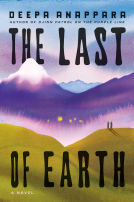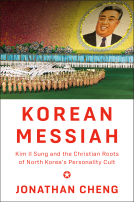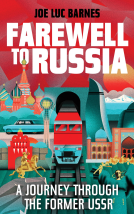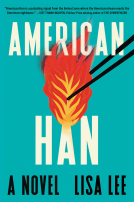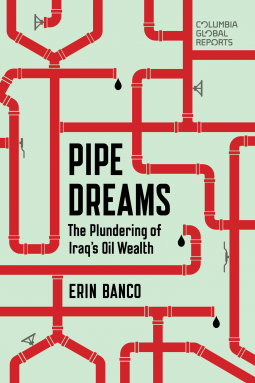
Pipe Dreams
The Plundering of Iraq’s Oil Wealth
by Erin Banco
This title was previously available on NetGalley and is now archived.
Send NetGalley books directly to your Kindle or Kindle app
1
To read on a Kindle or Kindle app, please add kindle@netgalley.com as an approved email address to receive files in your Amazon account. Click here for step-by-step instructions.
2
Also find your Kindle email address within your Amazon account, and enter it here.
Pub Date Jan 30 2018 | Archive Date Jan 30 2018
Description
What happened to Iraq's oil wealth?
Iraq sits on top of more than 140 billion barrels of oil, making it the owner of the world's fifth largest reserves. When the United States invaded in 2003, the Bush Administration promised that oil revenue would be used to rebuild and democratize the country. But fifteen years later, those dreams have been shattered. The Iraqi economy has flatlined, millions of people are internally displaced, and international institutions have had to provide billions of dollars in assistance to the country every year. Where did all the oil revenue go?
Reporter Erin Banco traveled to oil-rich Iraqi Kurdistan--an autonomous region that holds, according to the regional government, some 45 billion barrels of crude--to uncover how widespread corruption, tribal cronyism, kickbacks to political parties, and the war with ISIS have contributed to the plundering of Iraq's oil wealth. The region's economy and political stability have been on the brink of collapse, and local people are suffering. Based on court documents and on exclusive interviews with sources who have investigated energy companies and their dealings with government officials, Pipe Dreams is a cautionary tale that reveals how the dream of an oil-financed, American-style democracy in Iraqi Kurdistan now looks like a completely unrealistic fantasy.
Erin Banco is an investigative reporter at the Star-Ledger and NJ.com, where she focuses on the intersection of money and government. A former fellow at The New York Times and Middle East correspondent for International Business Times, she has covered armed conflict and human rights violations in the Middle East for years. She is a graduate of Columbia University's School of International and Public Affairs and the University of Wisconsin-Madison.
"A fascinating and revealing dive into the murky world of oil contracts that shape power and politics in Iraq." -- Loveday Morris, The Washington Post, Jerusalem bureau chief
Advance Praise
"Investigative reporter Erin Banco reveals the complicated conspiracies keeping the richness of Iraqi oil from trickling down to the general populace....Banco's reportage vividly shows the human toll that deceit and subterfuge have taken on a land so rich in natural resources." -- Kirkus Reviews
Available Editions
| EDITION | Other Format |
| ISBN | 9780997722949 |
| PRICE | $14.99 (USD) |
| PAGES | 170 |
Average rating from 4 members
Featured Reviews
 Francesco C, Reviewer
Francesco C, Reviewer
‘Pipe Dreams’ is an interesting reportage on one of the most complicated areas in the world, Iraqi Kurdistan. This region is one of the richest places in the world but paradoxically this richness is touching only a small elite of the population. Many people are living in refugees camps or in complete poverty. Erin Banco tries to give, throughout the book, the reasons that lead to this dramatic situation.
After the U.S invasion in 2003 and the toppling of Saddam, the West and the Kurdish government promised that a new age of prosperity was over the horizon, but after almost fifteen years nothing has changed. Only a small elite that includes members of the most prominent families in the region, politicians, and members of the Ministry of the Natural Resources have made fortunes. They promised to invest money on health and infrastructures, but most of the money ended in their pockets. A lack of transparency, a predominant climate of corruption at all level have made Iraqi Kurdistan’s economy a crumbling one. Agreements with international companies are signed at close doors, and it’s difficult to track them. However, Kurdish officials put much of the blame not on their lack of transparency and accountability, but on other matters out of control such as the influx of Syrian refugees, the emergence of Isis and the disputes between their federal government and the central government of Baghdad.
Nonetheless, many Kurds are still loyal to the notion of Kurdish independence so fraud and corruption are forgotten amid resentment over Baghdad. For a while, they turned a blind eye to corruption because the region was booming economically, but when the price of oil dropped the entire region faced a strong economic crisis and the rate of unemployment rose dramatically.
The last part if this book is dedicated to Isis’s emergence in 2014 and to peshmerga’s brave resistance. Isis’s plan was to take control of Kurds oil and then sell it to the black market. After the Kurds resistance and international airstrikes, Isis has finally been pushed out of oilfields. Kurds have managed to defend oil wells, pipelines through a great investment in military forces and security and in counterterrorism.
In conclusion, Kurds have been plundered of their oil wealth by their government and by foreign oil companies, but now a new generation of Kurds is aware that things have to change because so many people are living in a miserable condition, almost like animals.
Readers who liked this book also liked:
James McBride
General Fiction (Adult), Historical Fiction, Literary Fiction
Sean Sherman; Kate Nelson; Kristin Donnelly
Cooking, Food & Wine, History, Multicultural Interest
Pelumi Olatinpo
Essays & Collections, Multicultural Interest, Politics & Current Affairs
Natalie Haynes
General Fiction (Adult), Historical Fiction, Literary Fiction

